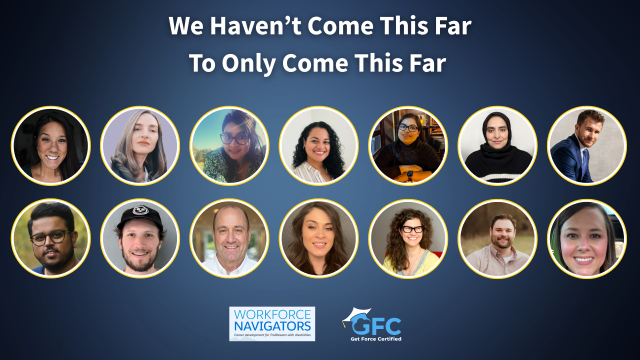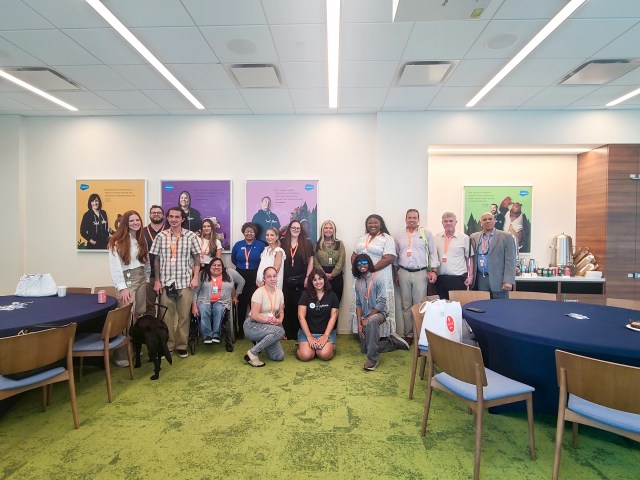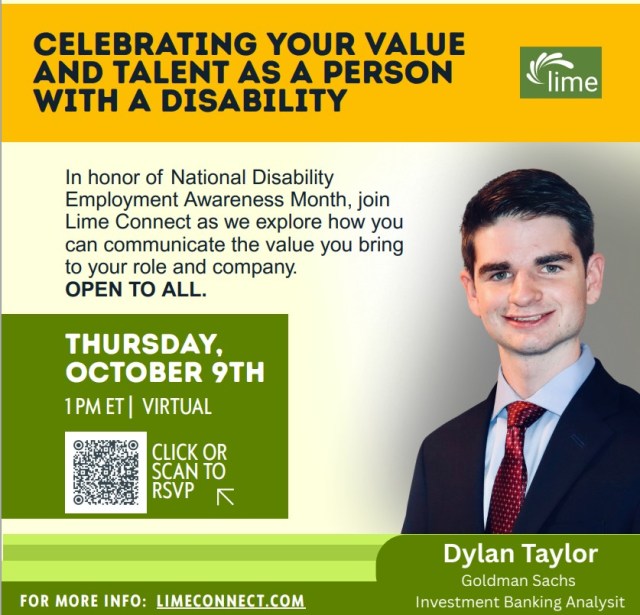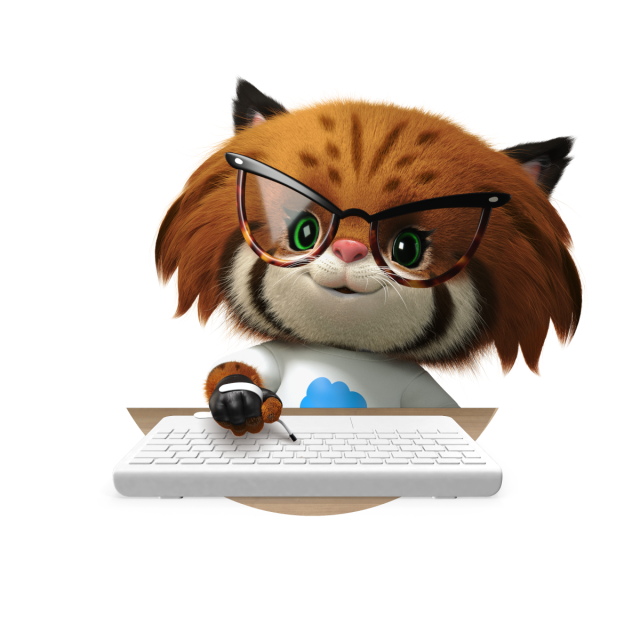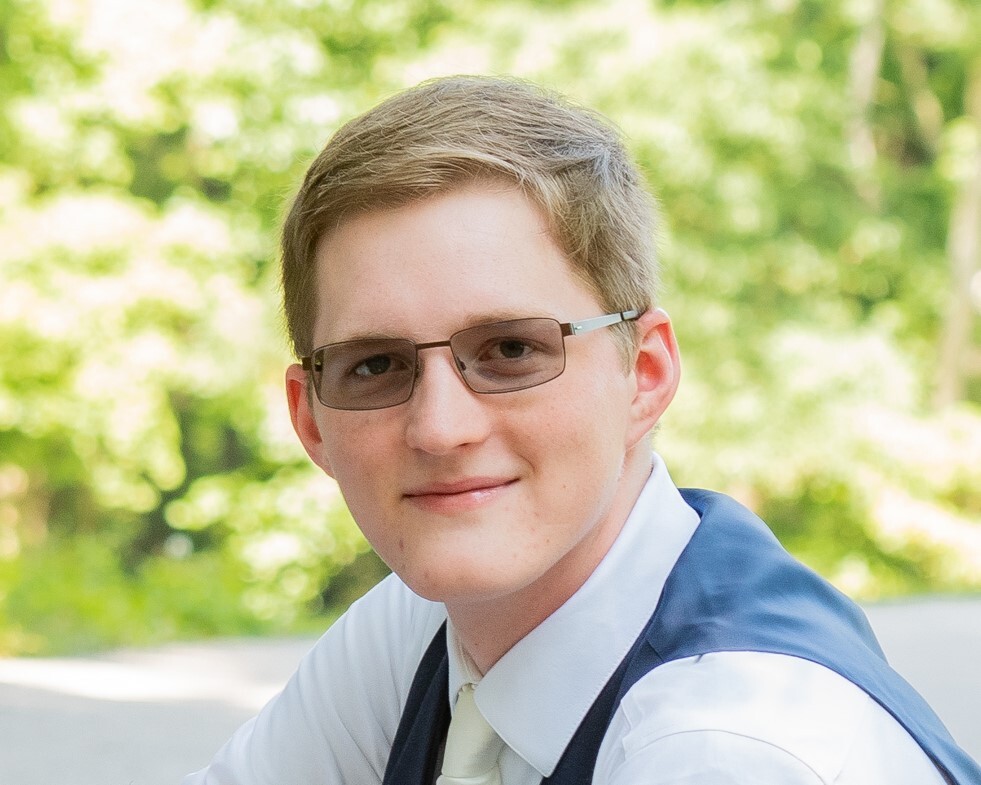When Travis McNair started planning a career change away from retail, he initially wanted to study medicine. But everything shifted after a series of life-changing events, including his father becoming seriously ill and passing away, and him and his fiancée welcoming their new son. Afterward, Travis needed a path that offered stability, flexibility, and a future he could build for his family.
He discovered Salesforce while exploring new career options and began teaching himself through Trailhead, the Salesforce free learning platform. However, self-paced learning proved tough to sustain — especially as someone with Attention Deficit Disorder, balancing work, caregiving, and parenting.
One day, a LinkedIn post caught his eye: a scholarship for the Get Force Certified Salesforce Administrator Academy, founded by former Salesforce Solution Engineer Dave Massey. The post mentioned mentorship, structure, and community — exactly what Travis had been missing. He applied, was accepted, and within months, his career and confidence were transformed.
Travis is part of a growing movement shaped by Workforce Navigators — an initiative that helps professionals with disabilities gain in-demand Salesforce skills — and by Get Force Certified, a program designed to meet neurodivergent learners where they are and prepare them for meaningful careers in the Salesforce ecosystem.
Breaking Down Barriers: The Power of Partnership
Workforce Navigators offers mentorships, accommodations, and scholarships that create pathways for disabled and neurodivergent professionals to build confidence and find meaningful employment in the Salesforce ecosystem.
Get Force Certified is a program founded by Salesforce Solution Engineer turned entrepreneur, Dave Massey, after experiencing his own transformation — moving from the tourism industry to a Salesforce career — and realizing how much structured support and community could help others make the same leap. It offers a 10-week, guided training experience that blends Salesforce technical learning with soft skills, mentorship, and career readiness.
Through the scholarship, learners like Travis receive full tuition coverage for the 10-week program, along with exam vouchers, personalized mentorship from Salesforce employees, and ongoing career coaching. Together, Salesforce and Get Force Certified are opening doors for individuals who might otherwise have been left out of traditional tech training pathways.
A Program Built for All Kinds of Thinkers
Get Force Certified stands out because it makes space for neurodivergence, recognizing the unique and varied ways that people think, process information, and engage with learning. The program offers multiple content formats (video, audio, written), clear structure, and small, collaborative cohorts that provide accountability and connection.
“It’s not about your degree or background,” Dave explains. “It’s about grit, communication, and the willingness to learn. Salesforce is logical and accessible — what people need is confidence and strategy.”
Salesforce mentors provide one-on-one support beyond certification, helping graduates apply new skills and navigate job searches. The scholarship doesn’t just fund a course, it builds a community that sustains learners long after graduation.
Travis’s Journey From Retail to Salesforce Admin
After beginning the Get Force Certified program, everything accelerated for Travis. The 10-week program combined technical lessons with personal development workshops, mock interviews, and community check-ins. “It wasn’t just about learning Salesforce — it was about learning how to thrive in a career,” Travis explains. “We practiced communication skills, built LinkedIn profiles, and learned how to network.”
Just 24 hours after completing the program, Travis passed his Salesforce Administrator exam. Within six weeks, he landed a full-time role as a Salesforce Admin and Trainer at a company that provides hybrid work, better pay, and flexibility to support his young family.
“I’ve doubled my income,” he says. “I can be there for my son. I went from feeling stuck to feeling unstoppable.”
Another Success Story: Jeanette’s Confidence Boost
For Jeanette Pavkov, the Workforce Navigators scholarship offered a chance to grow within her existing Salesforce role. Jeanette works as an administrator for a John Deere dealership and joined the March 2025 Get Force Certified cohort.
“I already worked in Salesforce, but I wanted to truly understand it,” she explains. “This program gave me confidence and ownership over my role.” Jeanette passed her certification just a few weeks after her program ended and quickly applied what she learned to streamline sales processes and improve reporting.
Beyond the skills, Jeanette says the program’s community made a lasting impact. “We were doing life together. Studying together. Celebrating every win. Even now, we still check in and help each other.” She continues to work with her Salesforce mentor, exploring how to grow her expertise in AI and Agentforce.
Inclusion That Transforms
For participants, the program isn’t just about passing an exam — it’s about transformation. Many learners come in doubting whether they belong in tech. They leave with certifications, job offers, and a sense of community.
“When you empower someone to believe in themselves, that changes everything — for them, their families, and their communities,” Dave says. “We’re not focused on numbers or quotas. This is about people.”
The ripple effect is already visible. Graduates like Travis and Jeanette are now mentoring others, advocating for accessibility in their workplaces, and inspiring more learners to take their first step into the Salesforce ecosystem.
Looking Ahead — Expanding the Impact
The success of the scholarship is only the beginning for Get Force Certified. Dave is developing a Wayfinder Program, a 12-month experience that guides participants from certification through advanced skills and job search strategy, supporting them all the way to sustained career success.
Meanwhile, Salesforce continues to expand its inclusion efforts through Workforce Navigators, connecting more learners with training, mentorship, and accessibility support around the world.
For Travis, the impact is already clear. “This program gave me the tools to build a life I didn’t think was possible,” he says. “I’m part of a community now — and I want to help others find the same opportunity.”
If you or someone you know is based in the United States or Canada and looking to launch a Salesforce career with the right support, consider the Get Force Certified Academy and Scholarship. Scholarships are limited and awarded twice a year — opening doors to more inclusive and accessible tech careers.
